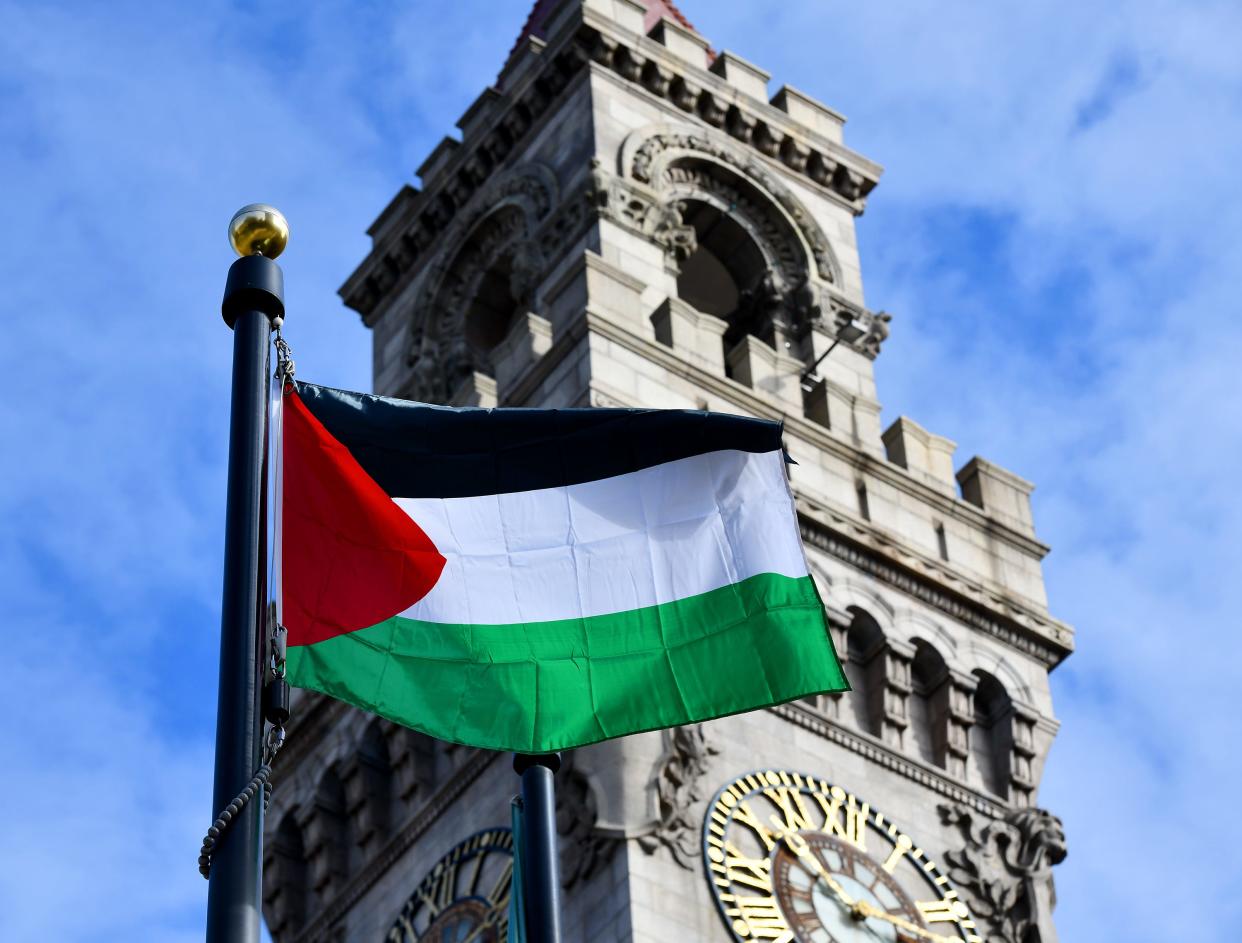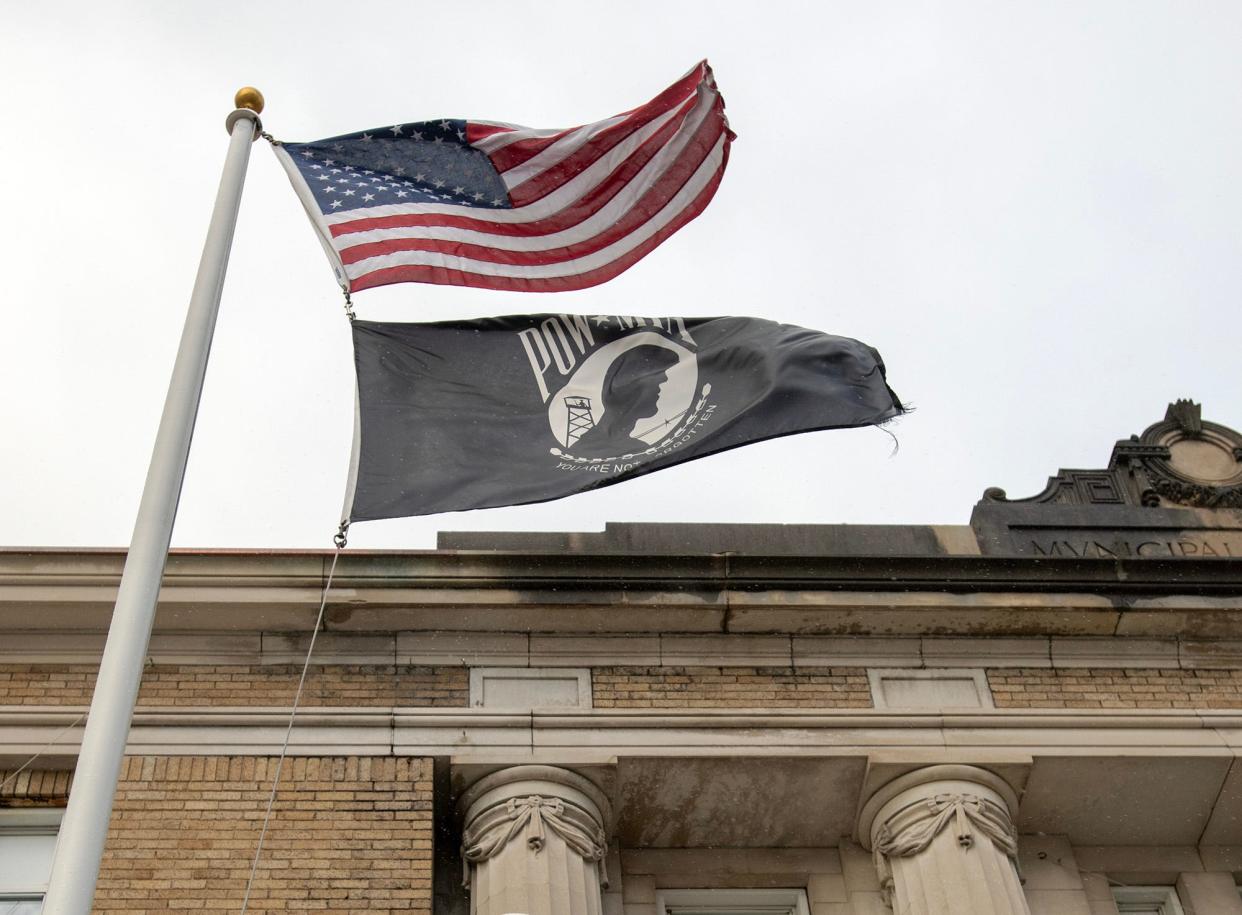SCOTUS decision prompts Mass. municipalities to review, create flag-flying policies

The approach to the raising of flags on public property differs across Massachusetts. Some communities elect to just fly those representing the national, state and local governments. Others dedicate space to community groups and allow them to raise their emblems upon request.
But the approach, according to KP Law, a Massachusetts firm that represents about one-third of the state’s municipalities, should be clear, consistent and in writing.
Municipalities in Central Massachusetts seem to have taken the advice to heart. Many have instituted flag-raising policies to avoid problems, some after becoming embroiled in controversies regarding the raising of certain banners.
A First Amendment question
“It’s a free speech issue,” said Mark Reich, a shareholder at KP Law, the speaker at a recent online seminar hosted by the Massachusetts Municipal Association that explored the difference between government speech and public speech.
Public speech — whether from a soapbox, on a community billboard or flying from a municipal flagpole in the middle of a town —is protected by the First Amendment.
“If municipalities want to control the message (on flagpoles) they need to adopt a policy surrounding their use,” Reich said. Lacking a written policy and having a history of allowing outside groups and entities to raise flags dictates that they must honor all requests.
“If that door is opened, municipalities are subject to all requests and are not allowed content review,” Reich said. It results in political statements or the position of a political group flying a message to the public at the top of a flagpole for all the world to see.
Fitchburg found itself in the middle of controversy when former Mayor Stephen DiNatale attended the raising of a Nuclear Family flag on a municipally owned pole in Riverfront Park in December 2022. The black-and-white banner touting nuclear families is associated with an anti-gay and anti-LGBTQ+ stance. At the ceremony, he reportedly claimed the raising of the flag was a matter of equality, as the city had flown a Pride flag earlier in the year.
Community grumblings ensued and the city lowered the banner.
In response, the City Council sought to create a flag policy, a move that was derailed when the former mayor unilaterally enacted his own policy, according to a municipal spokesman. That policy limited the flags flown on municipal poles to governmental banners — the U.S. flag, the Massachusetts state flag and the local municipal flag.
Limit to just governmental or allow all
Just last month, Spencer instituted its own written policy governing which flags are allowed on municipally controlled flagpoles. Municipal or public poles include those on municipal property, on school property and those located in parks and other public places.
Spencer opted to limit flags to governmental banners — the national flag, state flag and municipal flag.
“We looked at different policies and found one that fit our community,” said Town Administrator Jeff Bridges.
While Leominster does not have a written policy, it has followed an unwritten code dating back at least 30 years, declining requests to fly any flags other than governmental ones in front of City Hall. The city flies the U.S. flag, the state flag and the POW/MIA flag, similar to the state police policy, said Mayor Dean Mazzarella.

“We said we don’t fly other flags in front of City Hall,” Mazzarella said. “We decided that if we do it for one group, there will be no end to the requests.”
Flags are symbols or emblems of a country or institution and can express a thought, idea, philosophy or political position. Flags become an instrument of speech and are thus protected under the First Amendment.
Supreme Court rules against Boston in 2022
Boston learned that lesson the hard way through a 2022 decision by the U.S. Supreme Court.
In Shurtleff v. City of Boston, the court found that the city had discriminated against a Christian organization on the basis of religion by denying the group access to a municipally controlled flagpole for its banner in 2017. In filing suit against the city, the group claimed Boston lacked a written policy regulating flags and had allowed other groups access to the pole.
The Supreme Court decision “really woke municipalities up to the issues involving flags. Now they represent ideas, positions, stances of groups; that can be polarizing,” Reich said.
Worcester has five flagpoles in front of City Hall. Four fly the U.S. flag, Massachusetts flag, Worcester flag and an Indigenous Peoples flag. The fifth pole is dedicated to requests from community members and is rotated based upon requests.
The city administration does not choose those flags to display on its own, according to Tom Matthews, a city spokesman.
Worcester recently raised an Israeli flag and then a banner representing Palestine on the same flagpole dedicated to the community. The city’s policy, Matthews said, is to raise cultural flags in a consistent and appropriate manner. Approvals are granted on a first-come, first-served basis.
The city, with residents from around the world, is guided in its flag-raising decisions by its Human Rights Policy. Matthews noted the importance of raising and displaying cultural flags as the practice enhances awareness of the city’s diversity and expresses respect to all community members
The city’s policy, along with an application to make a request to fly a cultural flag, is available online at www.worcesterma.gov/human-rights/cultural-flags.
Flags, Matthews said, are typically displayed for a one‐day period. To ensure an equitable process, flags are limited to being raised once per calendar year. Flags must be dropped off at the City Manager's Office, Room 306, no later than two days prior to date requested to be raised and picked up within two days after being displayed.
This article originally appeared on Telegram & Gazette: Lack of consistent policy opens door to all flag raising requests
